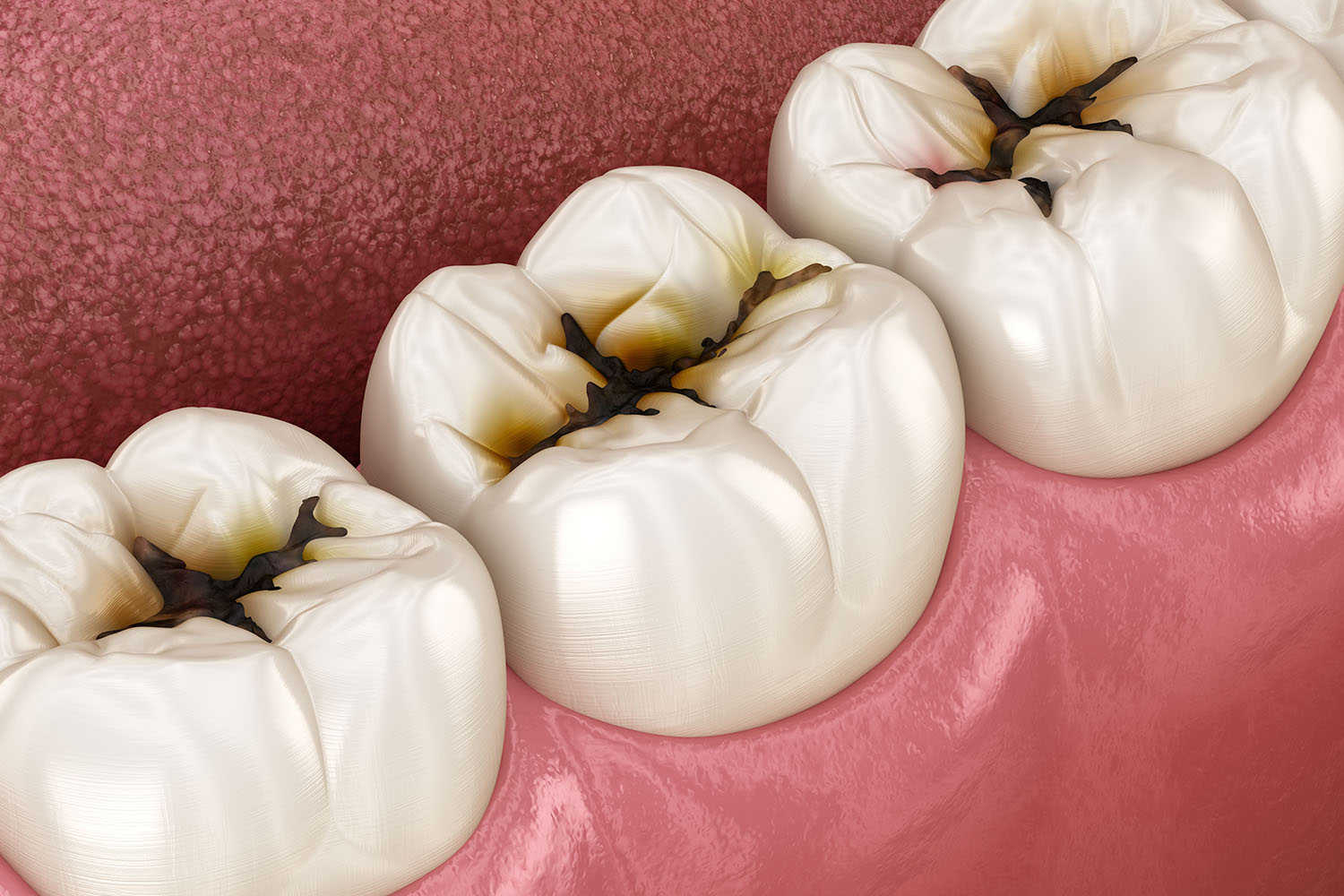Overview
Caries, commonly known as tooth decay or cavities, is a prevalent oral health condition characterized by the demineralization and destruction of tooth structure. It is primarily caused by bacterial fermentation of dietary carbohydrates, leading to the production of acids that erode tooth enamel over time. Caries can affect individuals of all ages and can lead to pain, infection, and functional impairment if left untreated. Let’s explore all aspects of caries:

Causes:
Caries result from a complex interplay of factors, including bacteria, dietary habits, saliva composition, and host susceptibility. Streptococcus mutans and Lactobacillus species are among the primary bacteria implicated in caries formation.
Consumption of sugary and starchy foods provides a substrate for bacterial fermentation, resulting in the production of acids that weaken tooth enamel.
Poor oral hygiene practices, inadequate fluoride exposure, and certain systemic conditions can also increase the risk of caries development.
Stages:
Caries progress through several stages:
Initial Demineralization: Acidic byproducts from bacterial metabolism weaken the enamel, creating white spots or chalky areas on the tooth surface.
Enamel Decay: As demineralization advances, the enamel breaks down, forming a cavity or hole in the tooth structure.
Dentin Decay: If left untreated, caries can progress into the dentin, the softer layer beneath the enamel, leading to increased sensitivity and potential for bacterial infiltration.
Pulp Involvement: Severe decay can extend into the pulp chamber, where the tooth’s nerves and blood vessels reside, causing pain, inflammation, and potential infection.
Symptoms:
Early-stage caries may be asymptomatic, but as the condition progresses, individuals may experience symptoms such as:
- Tooth sensitivity to hot, cold, sweet, or acidic foods and beverages.
- Pain or discomfort, especially when biting or chewing.
- Visible holes or pits in the teeth.
- Discoloration or staining of the affected tooth surface.
Prevention and Treatment:
Prevention strategies focus on minimizing risk factors and promoting optimal oral hygiene practices:
- Brushing teeth twice daily with fluoride toothpaste.
- Flossing daily to remove plaque and food debris from between teeth.
- Limiting consumption of sugary and acidic foods and beverages.
- Regular dental check-ups and professional cleanings.
- Application of fluoride varnish or dental sealants to protect susceptible teeth.
Treatment options for caries vary depending on the severity and extent of decay:
Fluoride treatments and remineralizing agents may be used to reverse early-stage demineralization.
Dental fillings, such as amalgam or composite resin, are used to restore teeth affected by cavities.
In cases of extensive decay or infection, root canal therapy or tooth extraction may be necessary.
Impact on Oral Health:
Caries can have significant implications for oral health and overall well-being:
Untreated cavities can progress to advanced stages, leading to pain, abscess formation, and tooth loss.
Chronic dental infections can contribute to systemic health problems, including cardiovascular disease and diabetes.
Dental caries can affect speech, chewing ability, and nutritional intake, impacting quality of life and social well-being.
In summary, caries is a common oral health condition caused by bacterial activity and dietary factors, leading to the demineralization and destruction of tooth structure. Prevention through good oral hygiene practices and regular dental care is key to minimizing the risk of caries development and preserving oral health. Early detection and prompt treatment are essential for preventing complications and maintaining optimal dental function and aesthetics.



